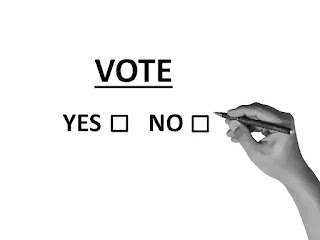Christianity is a very large religion with followers spread across various countries and cultures. As a result, the relationship between Christians and politics has been a topic of interest and debate. In this article, we will delve into the complex dynamics and examine the different perspectives surrounding this relationship.
 |
| Image from pixabay |
1. Christianity and Political Engagement
Christianity has a long history of political engagement. From the early days of the faith, Christians have grappled with questions about their role in society and how their beliefs should influence their political actions. Here are some key points to consider:
- Throughout history, Christians have played significant roles in political movements and decision-making processes.
- Christian values, such as justice, compassion, and human dignity, have often been driving forces behind social and political reforms.
- Christian leaders have been vocal on issues such as poverty, inequality, human rights, and the sanctity of life.
2. Different Approaches to Christian Political Engagement
There is no single approach to Christian political engagement, as beliefs and interpretations vary among different denominations and individual believers. Here are a few common perspectives:
a. Christian Activism
Some Christians believe that active political engagement is an essential part of living out their faith. They argue that Christians have a moral obligation to work for justice and advocate for policies aligned with biblical principles. This approach often involves direct participation in political campaigns, lobbying, and community organizing.
b. Christian Separatism
On the other end of the spectrum, some Christians advocate for a separation between church and state, believing that faith and politics should remain distinct. They argue that focusing solely on spiritual matters is more important than engaging in political activities, which they perceive as worldly and potentially distracting from the core message of the gospel.
c. Christian Pragmatism
Many Christians take a pragmatic approach, recognizing the importance of political engagement but also acknowledging the challenges and complexities involved. They seek to find a balance between their faith principles and the practical realities of political decision-making. This approach often involves thoughtful discernment, strategic alliances, and making compromises when necessary.
3. Controversial Issues and Christian Perspectives
When it comes to specific political issues, Christians may hold differing views based on their interpretation of scripture and their personal convictions. Here are a few examples:
a. Abortion
The issue of abortion has been a significant point of contention among Christians. Some view it as a violation of the sanctity of life and advocate for strict legal restrictions, while others emphasize the importance of women’s reproductive rights and access to safe healthcare.
b. LGBTQ+ Rights
Christian perspectives on LGBTQ+ rights also vary. While some Christians hold traditional views that marriage should be between a man and a woman, others advocate for equal rights and inclusion, arguing that love and acceptance should be central to the Christian faith.
c. Social Justice
Social justice issues, such as poverty, inequality, and racial justice, are areas where Christians often find common ground. Many believers believe that addressing systemic injustices is an integral part of living out their faith and demonstrating God’s love in the world.
4. Challenges and Eth
ical Dilemmas
Engaging in politics as a Christian can present several challenges and ethical dilemmas. Here are a few issues to consider:
a. Partisanship and Divisiveness
Politics can be divisive, and Christians must navigate these challenges carefully. It is essential to promote respectful dialogue, unity, and the pursuit of common goals, even when there are differences of opinion.
b. Balancing Faith and Compromise
When engaging in political processes, Christians may face situations where their faith values conflict with pragmatic compromises necessary for progress. Striking the right balance between standing firm in principles and making practical concessions can be a delicate ethical challenge.
c. Avoiding Idolatry and Power-seeking
Christians must guard against the temptation to idolize political power or place their ultimate hope in earthly systems. It is crucial to maintain a proper perspective and prioritize the values of love, justice, and humility above political ambitions.
5. Conclusion
The relationship between Christians and politics is multifaceted and dynamic. While there is no one-size-fits-all approach, it is clear that Christians have a long history of political engagement driven by their faith values. The diverse perspectives within the Christian community highlight the complexity of the issues at hand and the need for respectful dialogue and understanding.
Ultimately, Christians are called to be salt and light in the world, striving for justice, peace, and the well-being of all people. By actively engaging in political processes while upholding the principles of love, compassion, and integrity, Christians can contribute to creating a more just and equitable society.
